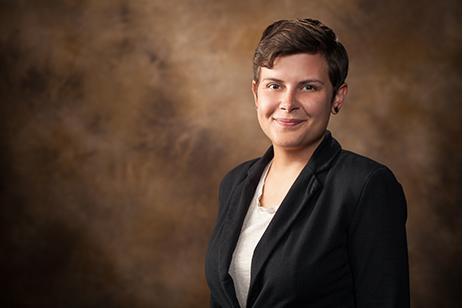FAYETTEVILLE, Ark. – In Waiting for “Superman,” director Davis Guggenheim uses conservative rhetoric to influence a liberal audience about the need for charter schools, according to a recently published analysis of the film by a University of Arkansas doctoral student.
Guggenheim uses his 2010 documentary to draw attention to high dropout rates, student struggles, a strain on teachers, and the inequality between school districts in different class-dominated neighborhoods. However, Paige Hermansen-Webb, a doctoral student in the Department of English, argues that Guggenheim never delivers a full picture of public schools, instead letting the narration imply that inner city schools fail their students.
“Viewers do not see the bad teacher, but can assume his or her presence,” Hermansen-Webb writes. “Viewers do not see the union supporting that bad teacher, but they can assume its influence. Viewers do not hear the lessons given during classes, but they can assume those lessons lack rigor and substance.”
Hermansen-Webb’s analysis appears in the current issue of the journal Rhetoric & Public Affairs.
Waiting for “Superman” follows five low-income children in Washington, D.C., and New York City whose parents want them to attend privately managed charter schools instead of public schools.
Guggenheim advocates for a more conservative approach to education such as supporting charter schools in districts with poor public school performances. However, he also directed the environmental film An Inconvenient Truth, which was written and narrated by liberal politician Al Gore, which might lead the audience to assume Waiting for “Superman” has a liberal agenda, she said. The liberal audience assumes it will receive a liberal message, while Guggenheim actually conveys a conservative message, according to Hermansen-Webb.
In the film, Guggenheim portrays public education as a “mismanaged economic commodity,” according to Hermansen-Webb. For example, the documentary features an interview of a mother of a Harlem kindergarten student. The mother says she works multiple jobs to pay for her daughter’s monthly $500 private school tuition.
“The mother’s concerns about her daughter suggest that her daughter would be unable to attend college and pursue a well-paying job if she were enrolled in a public school,” Hermansen-Webb writes. “The daughter’s education, in the analogy Guggenheim created, is the commodity that could be ‘sold.’ If her education is of high enough quality, we assume someday Bianca ‘will have money and she will be happy.’”
In her analysis, Hermansen-Webb contrasts how liberals and conservatives in the United States view the purpose of the public school system. Hermansen-Webb argues that liberals traditionally view public schools as institutions of social equality and intellectual enlightenment, while conservatives traditionally believe schools prepare the nation’s future workforce.
Liberals tend to prefer to utilize funds to improve public schools while conservatives tend to prefer competition between public schools, including charter, and private schools as a means to improve, according to Hermansen-Webb.
Topics
Contacts
Leah Markum, intern
University Relations
479-575-5555,
Paige Hermansen-Webb, doctoral student, Department of English
J. William Fulbright College of Arts and Sciences
479-575-4301,
